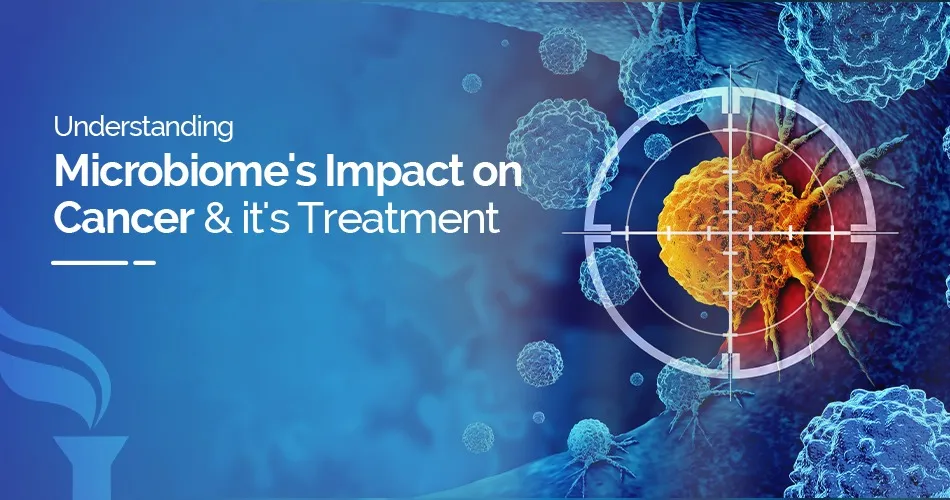Understanding Microbiomes Impact on Cancer & its Treatment
May 21, 2024

Cancer, the horrific enemy of modern medicine, has long been examined from a variety of perspectives in the search for new therapies and prevention techniques. Among the numerous factors contributing to the formation and progression of cancer, the microbiome - the complex population of bacteria that live in our bodies, particularly the gut - has emerged as an intriguing field of study. In recent years, scientists have gone deeper into understanding the complex link between the microbiome and the immune system, revealing crucial consequences for cancer.
At the crux of this research lies the gut-immune system connection, a dynamic interplay between the microorganisms that inhabit our gastrointestinal tract and the complex network of immune cells tasked with defending our bodies against foreign invaders, including cancer cells. The gut microbiome, comprising trillions of bacteria, viruses, fungi, and other microorganisms, plays a pivotal role in shaping the immune landscape within our bodies.
Furthermore, new data indicates that specific microbiota in the gut microbiome has the extraordinary capacity to directly affect the effectiveness of cancer immunotherapy, a revolutionary treatment method that uses the immune system's ability to target and eradicate cancer cells. These "immunomodulatory" microorganisms have the potential to improve immunotherapy response, opening up new therapeutic options for cancer patients.
new data indicates that specific microbiota in the gut microbiome has the extraordinary capacity to directly affect the effectiveness of cancer immunotherapy, a revolutionary treatment method that uses the immune system's ability to target and eradicate cancer cells. These "immunomodulatory" microorganisms have the potential to improve immunotherapy response, opening up new therapeutic options for cancer patients.
Additionally, the gut microbiome is essential for controlling how food ingredients and pharmaceuticals are metabolized, which affects the bioavailability and effectiveness of these substances in the prevention and treatment of cancer. For instance, specific microbial metabolites derived from dietary fiber have been shown to exert anti-cancer effects by promoting immune function and inhibiting tumour growth.
Following these findings, utilizing the gut microbiome's potential has become a viable area of study and treatment for cancer. Probiotics, prebiotics, dietary modifications, and faecal microbiota transplantation (FMT) are a few of the methods being used to alter the microbiome in an attempt to improve modulating immune responses and improve cancer outcomes.
Nevertheless, there is still a lot that needs to be thoroughly understood despite an increasing amount of research highlighting the critical role the microbiota plays in cancer. A comprehensive understanding is necessary to solve the complicated relationship between the immune system, cancer cells, and the microbiome.
To sum up, the microbiome is an intriguing link in the complex web of cancer biology. The significant impact it has on immune response, tumour growth, and treatment response highlights how critical it is to include microbiome-based strategies to fight cancer. We are on the verge of revolutionary discoveries that have the potential to completely change cancer prevention, diagnosis, and therapy as research into the gut-immune system relationship continues to shed light.
Related Blog Post
- 5 Ways to support a loved one with cancer
- Preventing cancer is better than living with cancer.
- Cervical Cancer is a Form of Cancer Which Develops in the Cervix.
- World Breast Cancer Awareness Month
- Inherited Cancer Testing and Role of Genetic Counselling.
- Do all Breast Cancers run in the family – Are they hereditary?
Blog Categories
- Child Health
- Mens Health
- Women's Health
- Mental Health
- Health Myths & Facts
- Fitness
- Nutrition/Recipes
- Remedies
- Weight Management
- Stress Management
- Health Supplements
- Addiction Management
- Disease Management
- Allergy
- Anemia
- Arthritis
- Asthma
- Autoimmune Diseases
- Blood Pressure
- Cancer
- Deficiencies
- Dengue/Malaria/Chikungunya
- Diabetes
- Eye Problems
- Heart Diseases
- Hepatitis
- HIV/AIDS/STD
- Hormonal Imbalance
- Infection/Flu/Viral
- Kidney
- Liver
- Menstrual Problems
- Pregnancy
- Skin & Hair Problems
- Stomach Ailments
- Thyroid
- Others
- Health Checkups
- Diagnostics/Pathology
- Lifestyle & Wellness
- Covid
- Medical Tests
- Cholesterol
- Health Tips
- Parent Care/Old Age
- Lungs
- Food Intolerance








